'The left hates me because I don't celebrate their atrocities': Carlos Carrillo, director of UNGRD

Carlos Carrillo, director of UNGRD, has been speaking out about the dire economic situation of the institution he leads. He warned that the funding is insufficient to address the country's emergencies. In an interview with EL TIEMPO, he outlined the complicated outlook for addressing climate emergencies and offered his perspective on what is happening within the government and his party.
What is the financial situation of UNGRD, since you said they are underfunded? Recently, there was an announcement, though still unconfirmed, from the Ministry of Finance that some funds would be allocated. That's positive, but they haven't been allocated yet. The harsh reality is that the budget for this 2025 fiscal year, allocated to the management subdirectorate, which is responsible for disaster management—which is the one that responds to disasters—is already empty. So we've had to defund structural projects and the other mission lines of the entity because everything is being spent on serving the departments and municipalities. I want to emphasize that we've done so much that all the funds for this fiscal year have been consumed because the rainy season is extremely severe.
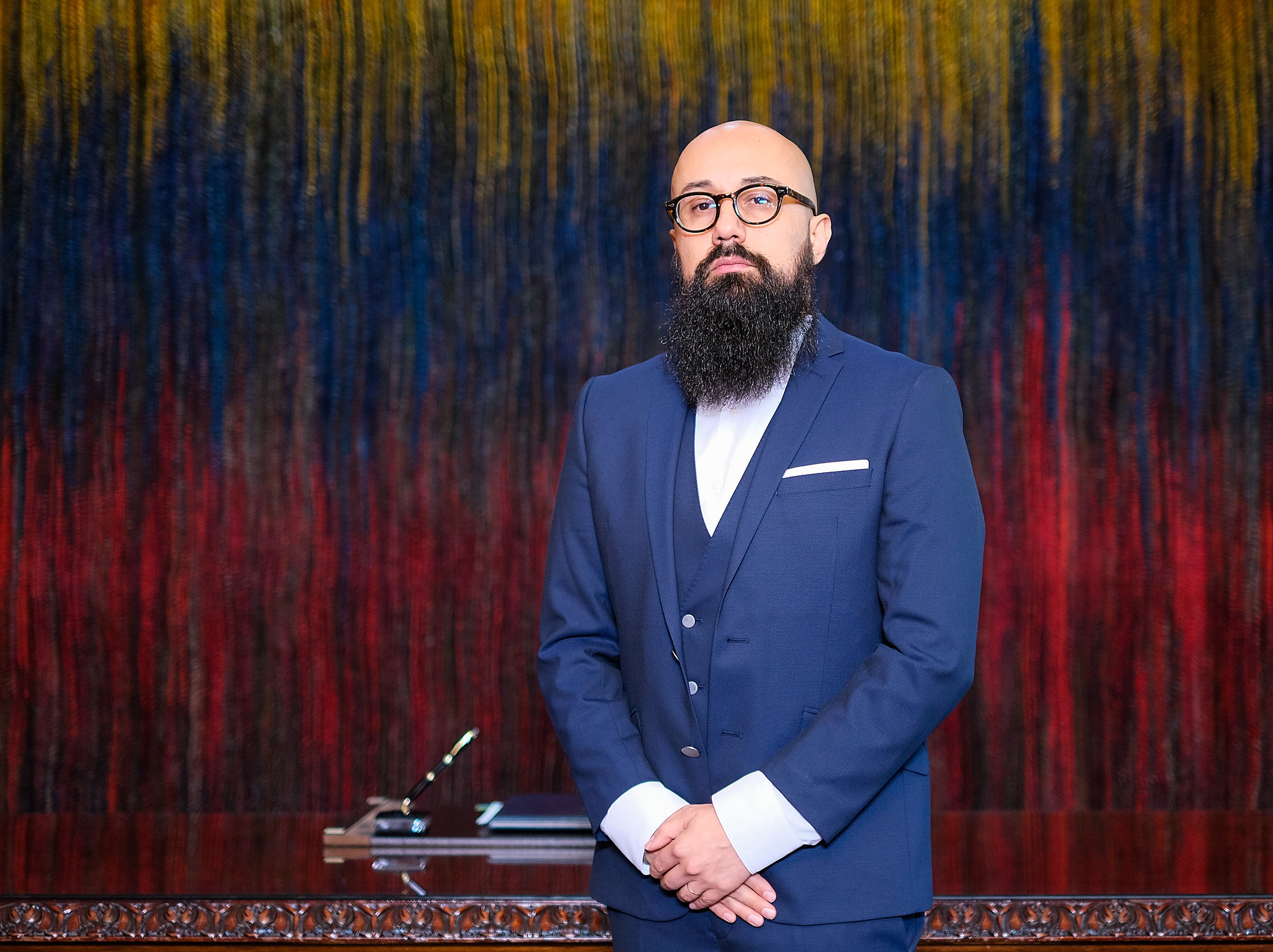
President Gustavo Petro appointed Carlos Carrillo as director of UNGRD. Photo: Presidency
No, what we've done is defund projects, which are very important, but the emergency response comes first. For example, we halted the acquisition of military bridges, which are sorely needed. We have requests for 200 military bridges, which is impossible to meet, but we had conducted an international market study and obtained some quotes bypassing the intermediary, contrary to what Olmedo did. However, we couldn't buy them because we had to spend the money on responding to emergencies that couldn't be addressed by the departments and municipalities. Remember that in the disaster system, the municipality must respond first, then the governor's office, and if the governor's office can't, then we step in. However, it's the municipality's duty to understand the emergency and the department's.
The winter emergency is still being felt. What is the outlook given this lack of resources? The rainy season should have ended in the middle of last month, but the reality is that we're in August, and there are places where it's still raining. These are the places in the country where there's more and less rain. Let's remember that in the Orinoquia and the Amazon, there's only one rainy season, and in the Andean and Caribbean regions, there are two rainy seasons. There are places where it continues to rain, and we must add to that the fact that there are places where forest fires are already starting. As soon as it stops raining, the country starts burning. It's a very complicated situation. There are five months left until the end of the year, and the fiscal squeeze is enormous. This must be said at this time when a new budget is being opened. We must call on Congress to assume the importance of its power. It's great that they have power but not responsibilities, which is what Congress is playing at today with its fight with the President. Of course, it takes two to fight, but what the Senate did last year, by not discussing the budget, was extremely irresponsible. This has very serious political consequences. They wanted to harm the president, but that doesn't harm the president, but rather 50 million Colombians.
You say you had to defund projects beyond the military bridges. What other areas did you have to stop receiving funds? We have a very serious problem with resettlement. We had 2 billion pesos cut from previous periods. The UNGRD (National Risk Management Fund) is responsible for managing the spending of the national risk management fund, which hasn't been governed by the annual principle, but rather by the principle of savings, by law, for a specific purpose. This money should be sacred and not be used for anything other than disaster management. With that sudden cut last year, which wasn't an administrative act, but simply because we weren't allowed access to these resources, many projects we had already structured with funds from previous periods were left unfunded. There's a very important and beautiful project, a resettlement project with an ethnic focus for the Inga people in Nariño, in a municipality called Tablón de Gómez. We made progress last year on resettlement. It's already been awarded. It costs 35 billion pesos and was associated with those previous periods, but now the Ministry of Finance won't allow us to access those funds.
The Ministry of Finance has already informed them that they can access the resources... A portion, a small portion, not all of the emergency resources. We're talking about only 20 percent of the funds from the emergency declaration, 1372.
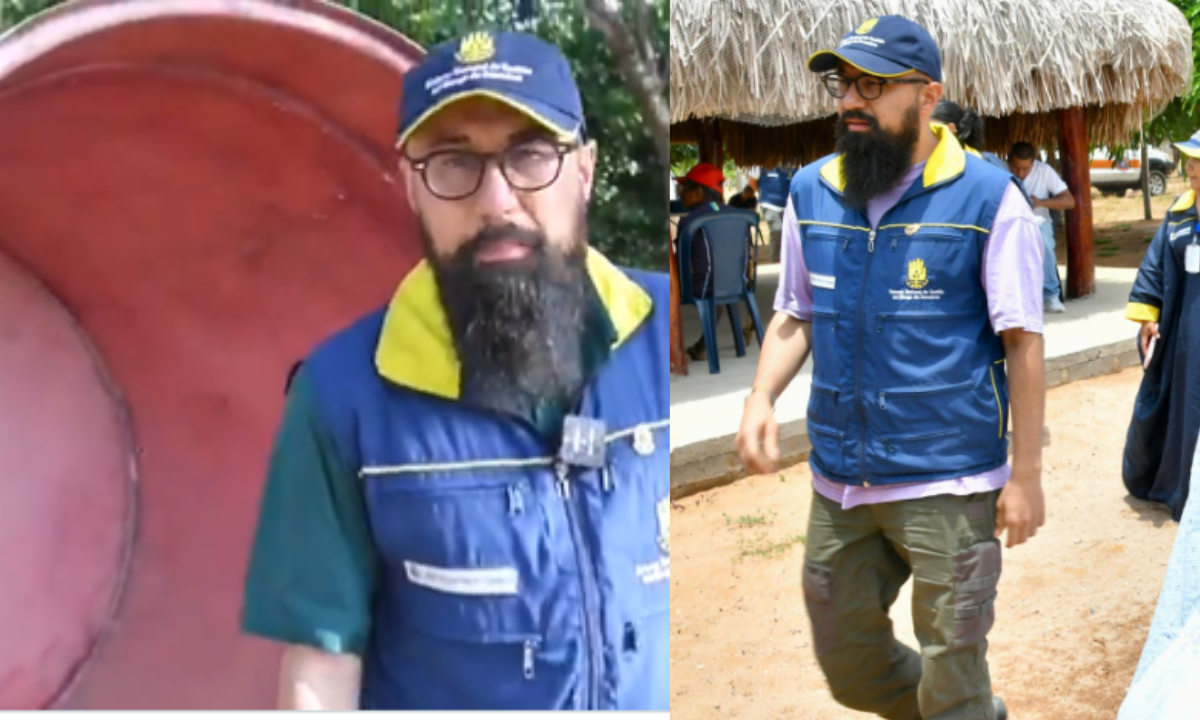
Carlos Carrillo Photo: X: UNGRD
That wouldn't be a punishment for the entity, but rather a punishment for me. The thing is, Olmedo López was given 1.6 trillion pesos to steal. Since I mentioned the military bridges, Olmedo made a super-sham deal for military bridges, spending 45 billion pesos on bridges that had three intermediaries and that could have been obtained directly, achieving better conditions, which is what we want to do, but now we don't have the money to buy the bridges. Olmedo, on the other hand, had the money to do whatever he wanted. It would be quite curious if the crook were given the money and the person who had it safely kept it safe wouldn't hand it over. But I don't think it's a punishment; I have no evidence that leads me to believe that. If it is, it would be very serious.
Since you say there are five months left until the end of the term and there are no resources, what does the country expect if the situation continues? It's not a matter of whether it continues, it's that it will continue. Climate variability is a reality. The climate crisis the world is experiencing means that territories are more vulnerable, that phenomena are increasingly more numerous and stronger. The country must adapt its institutions to face this new climate reality. We must create new institutions. But that's not the government's job; Congress creates them. Institutions must be modified so they have greater response capacities. We have to fund it. All municipalities in Colombia must have a municipal risk management fund, which is designated exclusively for emergencies, and that's why mayors don't like it very much. Once the money reaches that fund, it can't be used for other issues. All municipalities and departments must provide funding. We cannot ignore the capacity of the departments. We have invested in decentralization and in 35 years we have made progress, but the problem is that adaptation to risk and climate change is not a priority in Colombia, and it should be, because this is a life-or-death risk.
Is funding optional or is there a way to make it mandatory? It's optional, and there's no legal obligation to allocate a certain amount of resources to the fund. Only Congress can change that by imposing restrictions or mandating the contribution of resources to these funds. It's worth noting, however, that the creation of risk control funds is undoubtedly a step forward. I want to say something to conclude: since Law 1523, the Santos administration's, there has been great progress in institutionalization, but we've fallen short. This is a discussion the government should have before the country. Instead of engaging in the pitiful spectacle we saw on July 20th, with shouting, uproar, and disrespect for institutionalization by the opposition, what Congress should do is hold a discussion before the country about the future of risk management and the future of UNGRD.
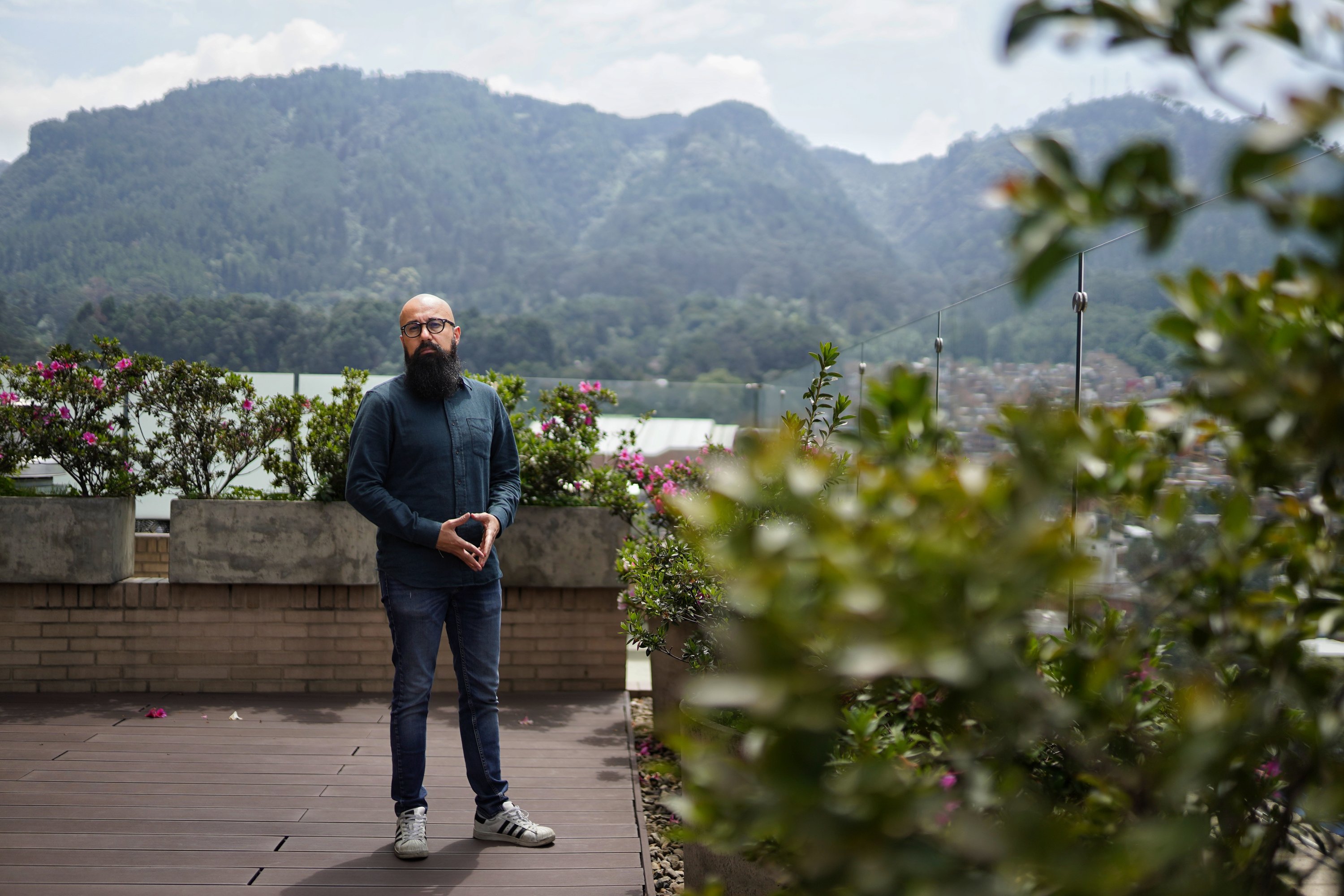
Carlos Carrillo was announced by President Petro as Director of Risk Management. Photo: Sergio Acero. EL TIEMPO
We have a draft bill that we hope to present to Congress in the coming days, but of course the President can use his constitutional powers to liquidate, suppress, or merge entities. There are other things he cannot do, such as create a new entity. Creating one requires going through Congress. That's why I'm calling for public opinion to understand that the solution to corruption at the UNGRD, which is not just from last year but endemic and structural, lies in building a new institutional framework robust enough to cope with climate variability and deliver for the country because, as things stand, every year will be a problem. In Colombia, there's no reelection; we're leaving on August 7 of next year. I may leave sooner, but the climate problem remains. Or is it that after Petro leaves power, it will start to rain less, or the forest fires will be extinguished? None of that. This is an ongoing problem, costing hundreds of thousands of lives. This time, we've had more than 40 percent more incidents than in previous years. This is an indisputable reality, and the country must adapt in order to respond.
Will this project create a replacement for UNGRD? The idea would be to strengthen the risk management system, which already exists. It was created in 2012; it's a step forward, and it must be protected. But the head of that system is the UNGRD. My entity isn't the system; we all are: the departments, municipalities, the private and community sectors, the Armed Forces. It's clear that things at the UNGRD haven't gone well. There's a consensus on that. The way forward isn't to eliminate the head but to strengthen the system as a whole. That's what we're aiming for in the bill. That requires Congress. The president doesn't have the authority to create a new entity, he can't.
You reported that you hadn't been able to meet with President Gustavo Petro due to a lack of resources. What ultimately happened? The budget issue will begin to be discussed this week; the President mentioned this in his speech from Cartagena. Two weeks ago, I met with him; he summoned me to the Casa de Nariño to discuss the Chocó region. There, we talked about the mouths of the Atrato River, which need dredging. But the budget discussion will take place in the institutional settings where these discussions take place.
You've been criticized by the left itself for your management; they say your work hasn't been good... Even on the left, they hate me because I don't celebrate their atrocities. In Congress, I receive more opposition from the Historic Pact faction than from the right-wing faction itself. In the Pact, the seats were decided by hand in 2022, and it's very likely that will happen again. Ninety percent of the Historic Pact faction considers me their enemy because I criticized the faction's legitimacy since 2022. I can name names, mediocre ones like Alejandro Ocampo, all those from the Polo party, with the notable exception of Iván Cepeda—who is a very decent man—and Wilson Arias. There isn't much I can do about that Polo faction. My own party is the one that attacks me the most. Here, things are done with facts. We managed to straighten out an entity that was in the basement of hell. We have delivered for the country. If you want to see the execution figures, the first thing you should look at is the payment figures, because the fund is not governed by the annuality principle. The issue is that some of the payments have to do with the Previsora trust, and the other issue is budget availability, because the government is delaying payments due to a serious cash flow problem. The criticism coming from my own camp is irrelevant to me because it's political criticism made from the comfort of the Senate. It's great to be a senator; they pay you 50 million pesos to do nothing but complain.
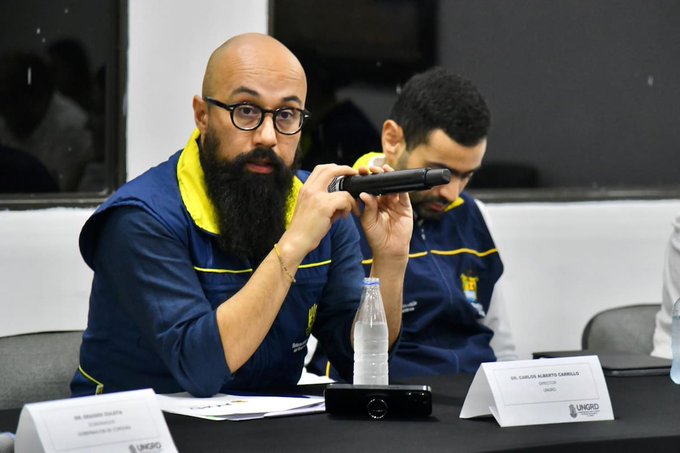
Carlos Carrillo, director of UNGRD. Photo: UNGRD Press.
The Historic Pact, although it's not my place to discuss politics, is part of a history of the left that has sought unity in electoral action, which has not been achieved. That has failed from Jorge Eliecer Gaitán until now. All the projects have failed so far, and the Pact's leadership has, for the most part, been part of the failure of those left-wing unity projects. The Pact's leadership is doing the same thing as the other failed projects. They are shaping a party that doesn't prioritize internal democracy, has no direct contact with its base, and only seeks to create a party of leaders. One can have a party of cadres, of leaders, of tendencies, or of members. I stay away from political discussions, but what I'm seeing is that all the bad practices of the past are being transferred into a new shell. The duty of the rank and file is to demand true democracy. And well, look, that new referendum hasn't even been registered yet. I hope it is. But holding an election in March, where millions of people vote, isn't the same as holding a cold election in October, where it's not even known how many people will vote and not all polling stations are open. Atypical elections have very specific processes and involve very high risks.
You're saying you won't make it to August 7th next year. Does this have anything to do with the differences you've had with Saade? No, the thing is that a public official is a fuse, and we must understand that. This is on loan. President Petro appoints officials and has every right to change them to breathe life into the government, for political reasons or whatever he wants. It's at his discretion. Petro has no obligation to me. And human beings also have limits, and these positions are incredibly taxing. I made the decision to disqualify myself. Many said I was going to the Senate, and they even suggested it to me, but I made the decision to stay because what we're doing here is important.
Finally, you took a harsh swipe at Saade. Was there a response from the Casa de Nariño? 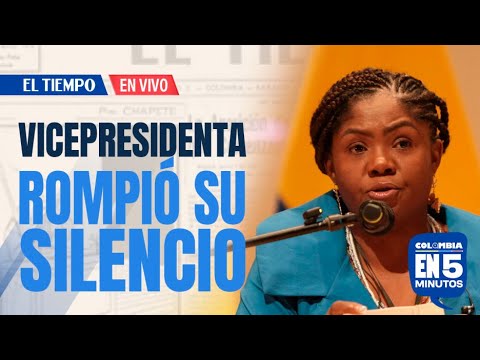
#ColombiaIn5Minutes Francia Márquez breaks the silence Photo:
Juan Sebastian Lombo Delgado
eltiempo




